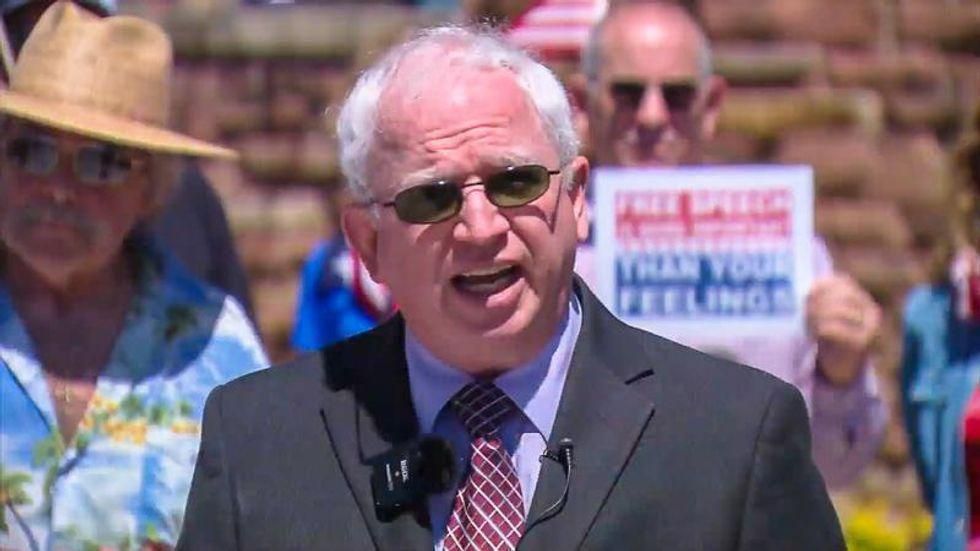The far-right lawyer and alleged mastermind of the plot to have former Vice President Mike Pence overturn the 2020 election results didn't incriminate himself by considering asking Donald Trump for a pardon, his attorney said Monday. In fact, he added, any "reasonable" person would have done the same.
John Eastman, was identified as an unindicted co-conspirator in special counsel Jack Smith's case against the former president — and he appears to have known he was at legal risk because reporting last year revealed he asked Rudy Giuliani about whether he could get a pre-emptive pardon.
But according to his lawyer Charles Burnham, speaking on MSNBC Monday, that doesn't mean he's guilty — and it's actually "reasonable" for innocent people to go around asking for pardons.
Anchor Ari Melber, himself an attorney, said, " Interestingly, we have a secret email that sort of leaked where he says to Giuliani, I've decided I should be on the pardon list, if that's still in the works. So my question for you, which crimes do you think he was worried about being indicted for?"
"You remember the atmosphere in that time period after January 6th," responded Burnham. "The media speculation, the accusations going back and forth about all sorts of things. Any reasonable person under those circumstances, whether they were innocent or guilty — and particularly someone innocent, as John Eastman was — would only prudently take that step if it was available to them. Nothing surprising in that at all."
"You see that as kind of standard?" Melber pressed him. "Everybody wants a pardon, not everyone, as you know, indeed the vast majority, didn't seek pardons. It would seem, especially since he is a lawyer, that he thought he had criminal exposure."
"Oh, not at all, not at all," said Burnham. "This sort of reminds me back when, you know, you had commentary when he availed himself of his Fifth Amendment protections, say anybody that does that is guilty, that was 100 percent wrong. And the implication, respectfully, that anyone would seek a pardon is just as wrong."
"But the Supreme Court ruled, as you well know, that the acceptance of a pardon, if you seek one, that you presumably want to seek it is itself tantamount to being guilty, that you are accepting the process and the conviction, but you're accepting that reprieve from the executive," said Melber. "So someone seeking a pardon — which again for my viewers to know is unusual, most people leave government without doing so – suggests some exposure. I take your point that he has a Fifth Amendment right. He exercised it. Again, to reasonably exercise it is to think that there will be a potential criminal proceeding or something that you don't want to start of self-report."
Watch the video below or at the link here.
Leave a Comment
Related Post
